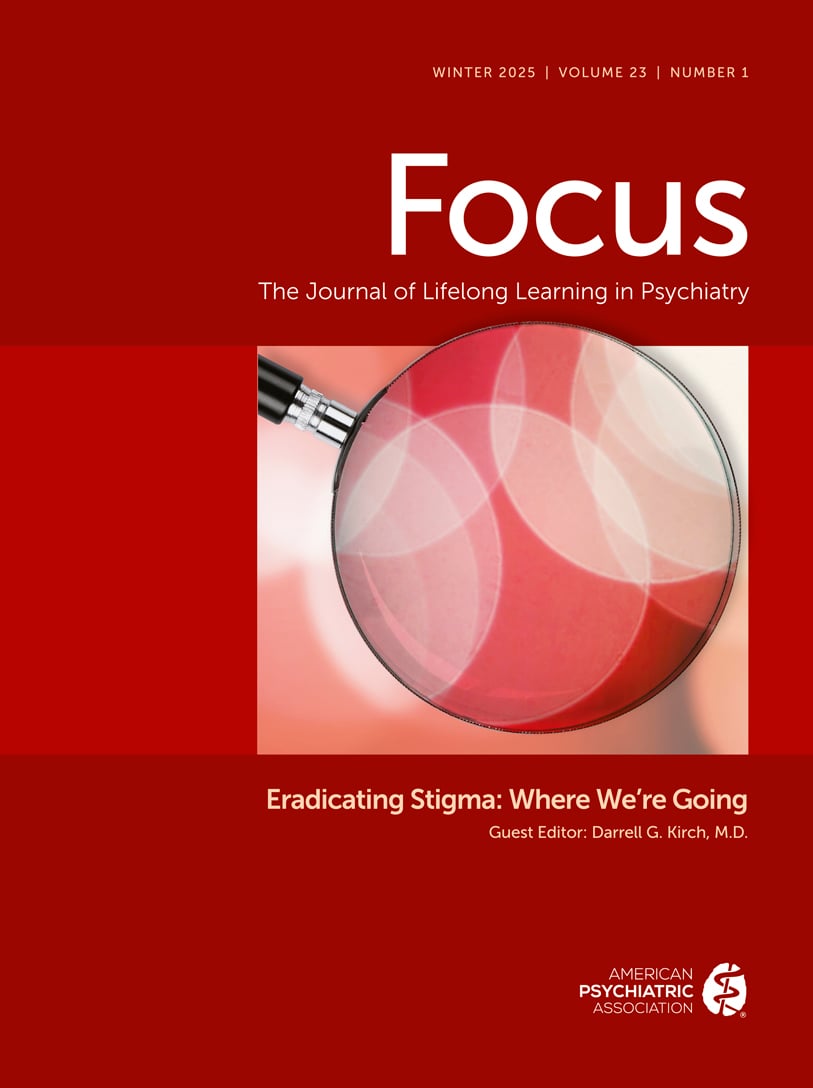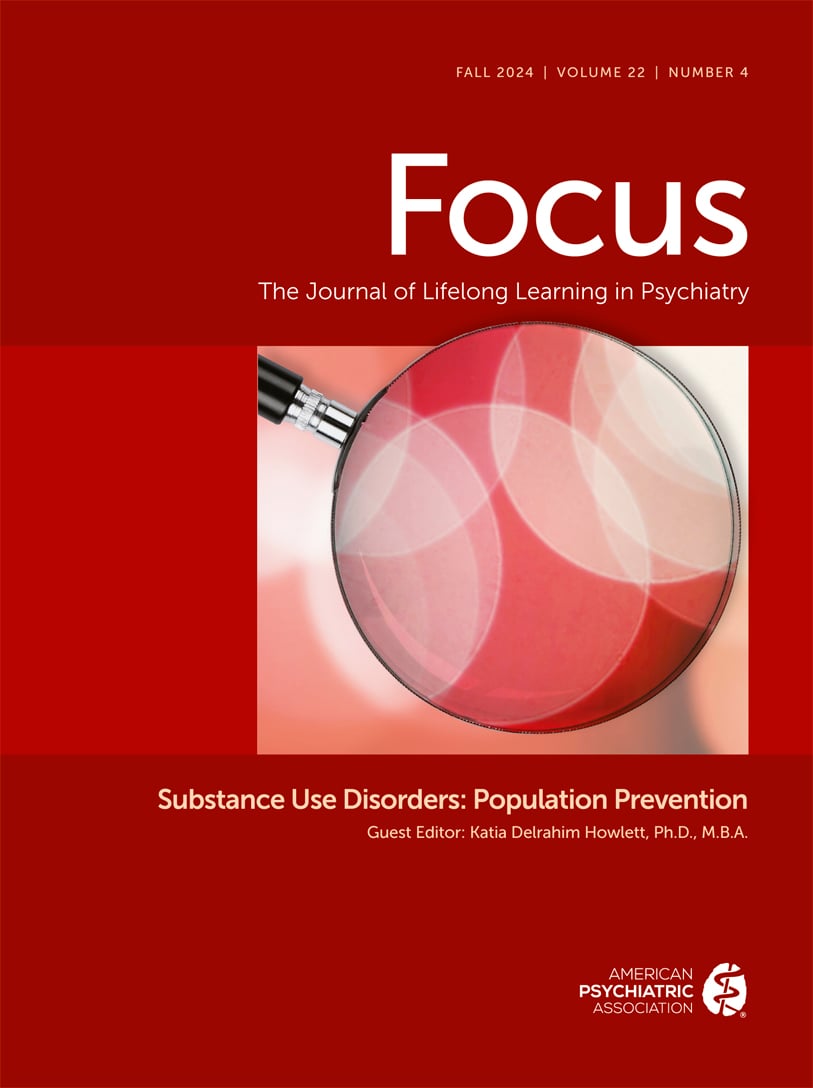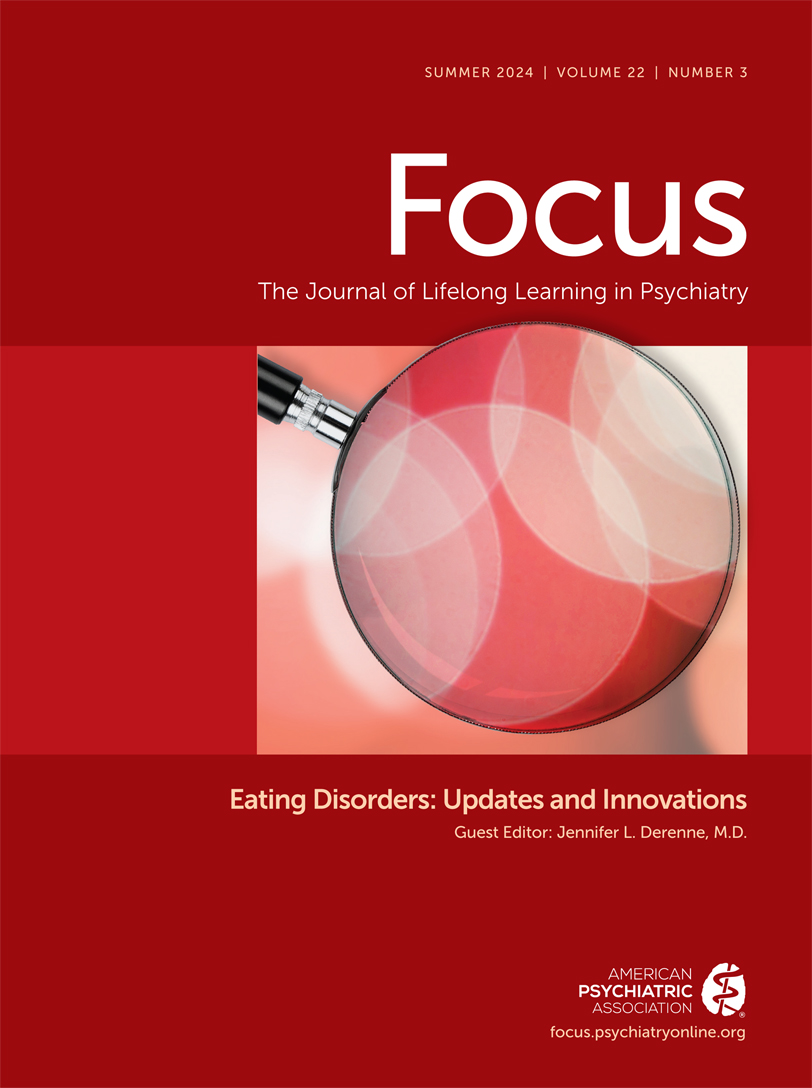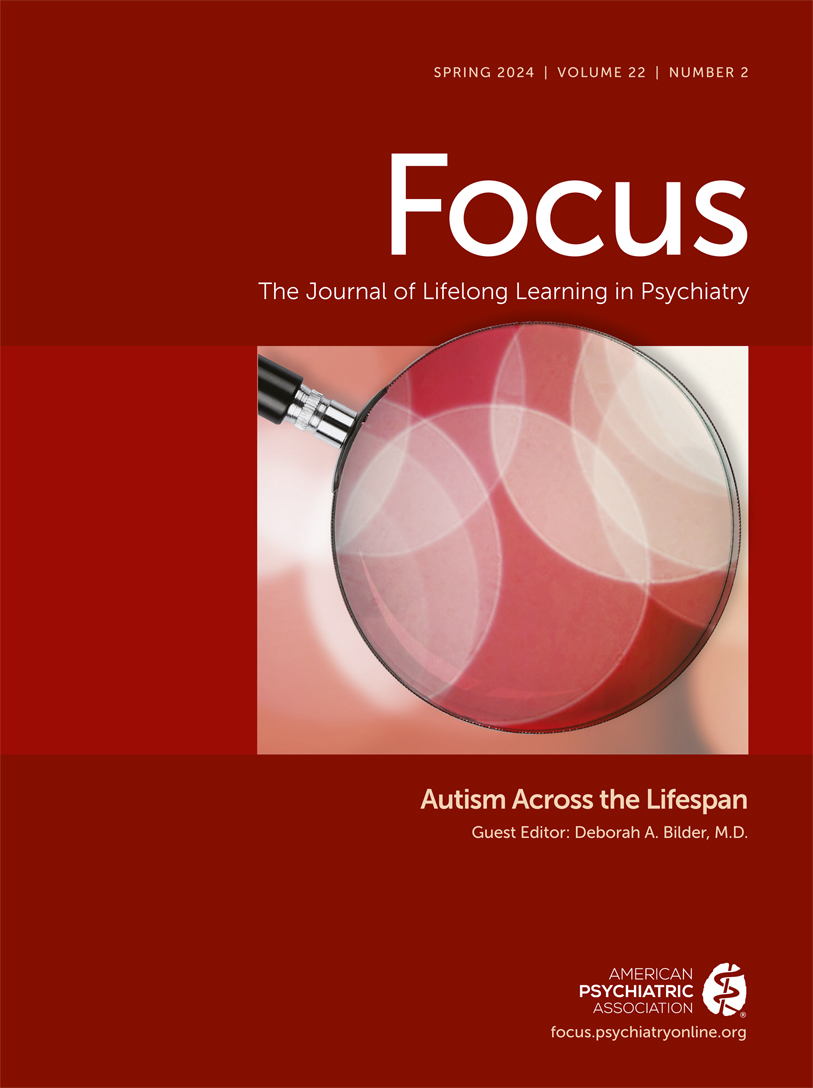Focus
- Volume 19
- Number 4
- October 2021
From the Guest Editor
Clinical Synthesis
Publication date: 01 October 2021
Pages384–391Obsessive-compulsive disorder (OCD) is a complex, multifactorial disorder with onset in either childhood or early adulthood. Lifetime prevalence has been estimated to be around 2%−3%. DSM-5 groups OCD together with closely related disorders—body ...
https://doi.org/10.1176/appi.focus.20210017Publication date: 01 October 2021
Pages392–404Hoarding disorder is characterized by difficulty parting with possessions because of strong urges to save the items. Difficulty discarding often includes items others consider to be of little value and results in accumulation of a large number of ...
https://doi.org/10.1176/appi.focus.20210016Publication date: 01 October 2021
Pages405–412Trichotillomania (hair pulling disorder) and skin-picking (excoriation) disorder are common neuropsychiatric disorders (each with a point prevalence of around 2%) but are underrecognized by professionals. Affected individuals repeatedly pull out their own ...
https://doi.org/10.1176/appi.focus.20210013Publication date: 01 October 2021
Pages413–419Body dysmorphic disorder (BDD), characterized by a distressing or impairing preoccupation with nonexistent or slight defects in appearance, is associated with markedly poor quality of life and high rates of suicidality. Onset of BDD is usually in ...
https://doi.org/10.1176/appi.focus.20210012Publication date: 01 October 2021
Pages430–443In this update of a previous review, the authors discuss cognitive-behavioral therapy (CBT) with exposure and response prevention for obsessive-compulsive disorder (OCD). This efficacious modality avoids side effects common to psychotropic medication and ...
https://doi.org/10.1176/appi.focus.20210015Ask the Expert
Ethics Commentary
Communication Commentary
Influential Publications
Publication date: 01 October 2021
Pages457–467Background: Several interventions are available for management of obsessive-compulsive disorder in adults, but few studies have compared their relative efficacy in a single analysis. We aimed to simultaneously compare all available treatments using both ...
https://doi.org/10.1176/appi.focus.19402Publication date: 01 October 2021
Pages468–476Background: Hoarding disorder (HD) is a new diagnosis in DSM-5 (American Psychiatric Association, 2013). Cognitive-behavioral therapy (CBT) appears promising for the treatment of HD, and has been tested in both individual and group settings. Methods: ...
https://doi.org/10.1176/appi.focus.19403Publication date: 01 October 2021
Pages477–489Background: Integrating family into the treatment of obsessive-compulsive disorder (OCD) is standard in pediatric populations; however, in adult populations, patients are typically treated independent of their family. Yet, there is compelling evidence to ...
https://doi.org/10.1176/appi.focus.19404Publication date: 01 October 2021
Pages490–495Background: This study sought to examine whether mood, anxiety, and obsessive-compulsive spectrum disorders have unique (comorbidity-independent) associations with suicidal thoughts and behaviors in an acute psychiatric population. Methods: Patients (N =...
https://doi.org/10.1176/appi.focus.19405Past Issues
View Issues Archive
Vol. 23 | No. 1

Vol. 22 | No. 4

Vol. 22 | No. 3
